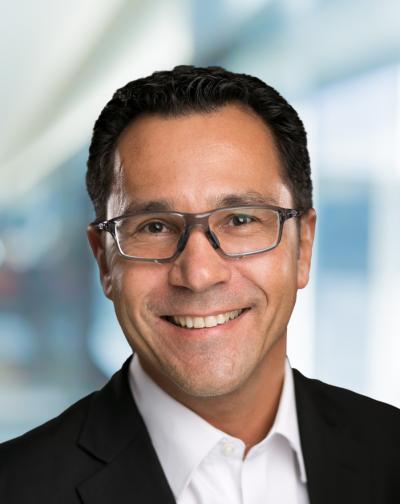While Southlake, Texas-based Sabre Corp. has been in the travel industry for nearly 70 years, the company only became a force within the hospitality technology space much more recently. The corporation launched Sabre Hospitality Solutions in late 2009, combining five of its business units into one team and providing both front-of-house and back-of-house services for hoteliers.
Sabre has been “at the center of the travel ecosystem” for years, said Frank Trampert, global managing director of community sales for Sabre Hospitality Solutions, which has divisions encompassing travel agencies, airlines and now hotels. This range, and the company’s longevity, have provided it with “a 360-degree view” of its customers and the challenges they face.
“I think that's how we sort of established our ability to help the industry,” Trampert said. “We evolved the business over many years to be a core enabler for hospitality businesses around the world to deliver and connect room products to a myriad of channels.”
Evolution

The Sabre Hospitality team was more “product-centric” in its earlier days than it is today, according to Trampert. Over the past few years, however, the company has invested in developing a dedicated service platform. “Those very deliberate investments [were] made to be able to scale and provide a high level of configuration for our customers,” he said. The company shifted to an operating model that involved becoming more focused on the customer experience.
More recently, Sabre has made “significant investments to improve [its] ability” to help hoteliers at the property level—“all with the intent, of course, to create increased revenue,” Trampert said. Its SynXis Central Reservations System, for example, was originally designed to help level the playing field for independent hotels and small chains. “Over the last 15 years, the platform really has grown to service a multitude of customers, be it independent hotels, be it large regional and global chains,” Trampert said.
At its core, Sabre specializes in omnichannel distribution, helping hotels provide availability, rates and inventory information to potential guests. Its platforms also help hoteliers connect to the broader hospitality ecosystem, Trampert said, from property-management to loyalty systems. Sabre also has adjacent products that help “booster” that core business, including global distribution systems, media, digital services and consortia services.
As the hospitality landscape changes with increasing speed, Trampert sees “a much higher need for the industry to act faster.” The sector has been slow to adopt new technologies and follow market trends, he noted, but recent years have changed the overall mindset. Trampert and his team have seen increased interest from hoteliers for more efficient ways to attract and maintain customers, as well as in a broader range of revenue streams.
Next Steps
In June, Sabre completed the initial rollout of SynXis Retail Studio, a product focused on driving revenue generation for hotels. The platform lets hoteliers sell a la carte services and experiences to guests “in a very easy-to-use user interface,” Trampert said. “It really enables the hotelier to diversify the retail of goods and services before the stay, during the stay and after the stay.”
Cordis Hotel & Resort in Hong Kong was the pilot customer for the platform, and the hotel reported a 53 percent increase in booking experiences, a 46 percent increase in merchandise sold and a 35 percent increase in services sold per roomnight in 2021 compared to the same period in 2019.
Before that, Sabre acquired hotel software company Nuvola. The company’s solutions, Trampert said, focus on front- and back-of-house operations as well as customer communications. The acquisition was meant to support the Retail Studio rollout, he added: “Nuvola is helping us to execute the delivery of those offers and bring them into the last mile.”
Logic in Logistics
Being a global business can make getting all of Sabre’s teams together a challenge, Trampert said. The company is organized into several geographic regions—Latin America; Europe, Middle East and Asia; and Asia Pacific in one division and North America in another—where teams work with their customers on a daily basis from an international perspective. “Our team comes together on a regular basis, and then as individual groups,” he said. The teams also hold cross-functional meetings in which they discuss roadmapping and how their products need to evolve over time. “Because we have people literally in 174 countries around the world—very close to our customers—we utilize those inputs to influence the future state and the readiness and viability of the platform for all of our customers around the globe,” Trampert said. Many of these meetings have been virtual, he said, but the team is starting to to travel to regional offices again.
Clicking with Clients
The Sabre Hospitality team spends “a lot of time” with their clients to better understand what each hotel needs, Trampert said. “Our hotels are asking us, ‘What can I do to create more personalized experiences, and how can I tailor my offers to our customers in a more efficient way and fashion?’ So that's where we come in, because it's vital that a hotelier can capitalize on these opportunities.” Sabre also has advisory boards of its largest customers from multiple segments, working with large and regional hotel chains to learn what they are seeing in their markets. “We have very specific workshops with our customers in which we solicit feedback. We have a consultancy work group as well where once a year we come together and we provide feedback to the consultants that advise large-scale hotel chains, but we also seek input as to what they see around the globe.”
